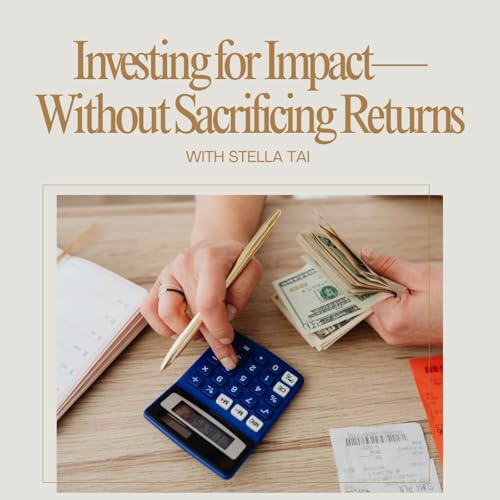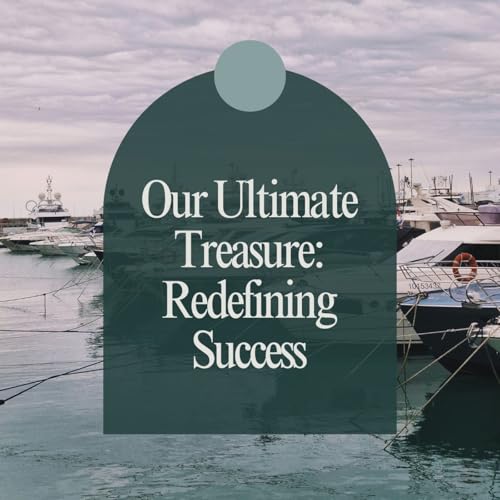J.I. Packer once wrote, “What matters in life is not what you make of it, but what God makes of it for you.” That contrast becomes especially clear when it comes to money. When circumstances shift, and uncertainty rises, the quiet question surfaces: Will there be enough? Our culture tells us peace comes through self-provision—earning more, saving more, planning better. But Scripture invites us into a different posture: resting in a Father who provides. Look at the Birds: Provision Begins with Relationship In Matthew 6:26, Jesus directs our attention upward: “Look at the birds of the air…your heavenly Father feeds them.” Birds don’t build financial models or stockpile reserves. Yet God sustains them. Jesus’ point isn’t irresponsibility—it’s relationship. Behind every plan, paycheck, and effort stands a God who sees, knows, and provides. Throughout Scripture, this truth repeats like a steady drumbeat: Abraham climbs Mount Moriah in obedience, and God provides a ram (Genesis 22:13–14).The widow of Zarephath runs out of resources, and God sustains her jar of flour and jug of oil (1 Kings 17:14–16).Peter wonders how to pay the temple tax, and Jesus provides the exact coin in a fish’s mouth (Matthew 17:27). From Genesis to Revelation, God’s provision is precise, purposeful, and personal. Every Need, Not Every Wish Paul echoes this promise in Philippians 4:19: “My God will supply every need of yours according to his riches in glory in Christ Jesus.” Notice what Paul doesn’t say. He doesn’t promise every want, preference, or wish list. He promises to meet every need. And that supply doesn’t flow from our economy, our income, or our investments—it flows from God’s riches. Provision is not sourced in us. It’s sourced in Him. Jesus Is Our Provision The truth goes even deeper. Jesus doesn’t just provide—He is our provision. In John 6:35, He says, “I am the bread of life; whoever comes to me shall not hunger.” Peace, then, is not found in financial comfort or problem-free living. It’s found in the presence of Christ. When we forget this, we drift into two familiar traps: Fear: What if there isn’t enough?Self-reliance: I’ll make sure there’s enough. Both pull us away from trust. The Source Behind Everything We Have Scripture reminds us that God provides not only resources but the ability to obtain them. Moses tells Israel, “Remember the Lord your God, for it is he who gives you power to get wealth” (Deuteronomy 8:18). Our skills, opportunities, work ethic, and even our capacity to earn—all come from Him. When that truth settles in, something shifts. Financial security stops being something we manufacture and becomes something we receive. Trusting God as provider doesn’t lead to inactivity. It frees us to work, plan, save, and give with joy. Our efforts become acts of stewardship rather than self-provision. Money becomes a place of spiritual formation rather than fear. That’s why Jesus teaches us to pray for “daily bread” (Matthew 6:11). Not because God lacks resources—but because our hearts need daily dependence. Daily bread cultivates daily trust. Where Are You Looking for Provision? Take a moment to ask: Am I looking to my paycheck for security?My savings?My plans for the future?Or the hand of a Father who feeds the birds and calls me His child? Whether you’re in a season of abundance or a season of need, Jesus doesn’t just promise provision—He gives Himself. And He invites you to trust Him day by day. When we trade fear for faith, striving for surrender, and self-reliance for dependence, we discover the deep joy of resting in a Father who sees and provides. Go Deeper: A Daily Journey of Trust This is the journey explored in Our Ultimate Treasure: A 21-Day Devotional to Faithful Stewardship. It’s an invitation to trust God as Provider, Owner, and Treasure in every financial decision. You can pick up a copy—or place a bulk order for your church or small group—at FaithFi.com/Shop. And if you’re using the FaithFi app, you’ll find excerpts woven into the first 21 daily Rhythms, helping you connect your financial decisions with your spiritual life each day. Start today by establishing a new rhythm—seeing your money not as your security, but as an opportunity to trust the God who provides. On Today’s Program, Rob Answers Listener Questions: I’m 65 and plan to work for another 5 to 6 years. I have $65,000 in a Roth IRA that hasn’t been invested. I’ve heard suggestions ranging from corporate bonds and CDs to an ETF. How should I think about investing this money?I’m 60, with a $700,000 pension lump sum, and am considering a buffered-income variable annuity for a few years before taking withdrawals. Is that a wise move?My husband and I are pastors with small 401(k)s. We’re curious about crypto—can we move funds directly from a 401(k) to invest in it, and is that advisable?When financing a car, is it better for a ...
Más
Menos
 25 m
25 m Mar 2 202625 m
Mar 2 202625 m Feb 27 202625 m
Feb 27 202625 m Feb 26 202625 m
Feb 26 202625 m 25 m
25 m Feb 24 202625 m
Feb 24 202625 m Feb 23 202625 m
Feb 23 202625 m Feb 20 202625 m
Feb 20 202625 m
